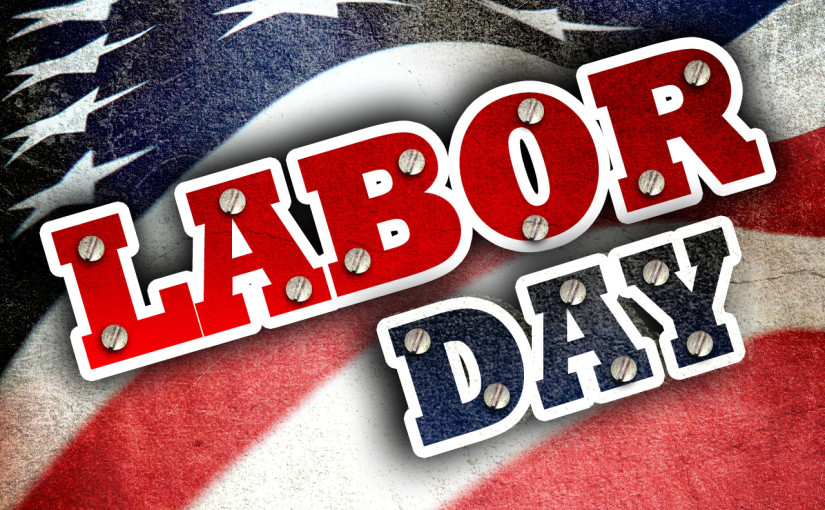The scribes and the Pharisees had it all wrong, of course. Their idea of labor and the Sabbath was all corrupted with their own greed and desire for self-righteousness. And so, even though these readings are the ones the Church gives us for Monday of the Twenty-third week in Ordinary Time, they work pretty well for us on Labor Day too. The scribes and Pharisees were defending a very literalist view of the Sabbath. For them, no work could be done on the Sabbath: not buying and selling, not cooking or cleaning, not laboring or planting or reaping. But unfortunately, they tossed out the baby with the bathwater: they did not even permit themselves to perform works of mercy on the Sabbath, and that’s where Jesus had a problem with their piety.
Saint Paul tells the Colossians in our first reading that he labored constantly for their salvation. For Saint Paul, there wasn’t a Sabbath from preaching the Gospel and saving souls. So for Jesus and Saint Paul, Labor was a cooperation with God’s creative and salvific work in the world, and the Sabbath was a respite from the works of the world so as to be reconnected with and refreshed by God. That’s how it always was intended, and sadly, the scribes and Pharisees had messed it all up.
I was reading yesterday on DNAinfo that Labor Day has its roots in Chicago. In the year 1894, almost 4,000 Pullman Company workers striked after their wages were cut but rent for company housing remained the same. The strike led to railway issues throughout the country as workers refused to use Pullman cars on trains, damaged tracks and attacked workers who had replaced them at work. Eventually, more than 100,000 workers across the United States walked off their jobs. Federal courts and troops were used to stop the strike, and union leader Eugene Debs faced federal charges (though most were later dropped and he was sentenced to six months). Labor Day was designated a federal holiday shortly after the Pullman Strike ended in 1894 as a way to appease labor activists.
Labor Day has always been a time for us to get the idea of work and Sabbath correct in our own day. Work was not given to us by God as a punishment, but as a way to achieve the best that humanity could become, by partnering with God himself to build up the kingdom of God. When we get it wrong, work can be damaging to families: either through unemployment, or underemployment, or work that demeans the laborer, or work that takes the laborer away from his family. Work, properly understood, as taught by our Church, provides a living and dignity for the worker, and sustenance for the family. Pope Francis writes in his encyclical, Laudato Si’, “Work is a necessity, part of the meaning of life on this earth, a path to growth, human development and personal fulfillment” (no. 128).
In their Labor Day Statement this year, the US Conference of Catholic Bishops takes note of the toll that labor inequality and unemployment have on the family, as well as the woundedness of the human family caused by greed and indifference to the needs of the poor and those marginalized by society. They write that the path forward has to consist of individual and communal action, standing in solidarity with families in need. They write: “Our faith calling to love one another impels us to share that vision of charity and justice with others, and to go forth and encounter those at the margins. Through collective action and movements, we have to recommit ourselves to our brothers and sisters around the world in the human family, and build systems and structures that nurture family formation and stability in our own homes and neighborhoods. Sufficient decent work that honors dignity and families is a necessary component of the task before us, and it is the Catholic way.”
The Psalmist says today: “Only in God be at rest, my soul, for from him comes my hope.” Resting in God is our true Sabbath, and when we do that, we will be in solidarity with those in need, laboring for God in doing works of mercy and spreading the Gospel in our words and our deeds.
